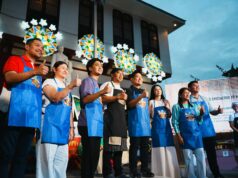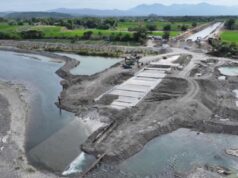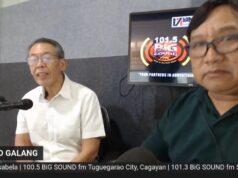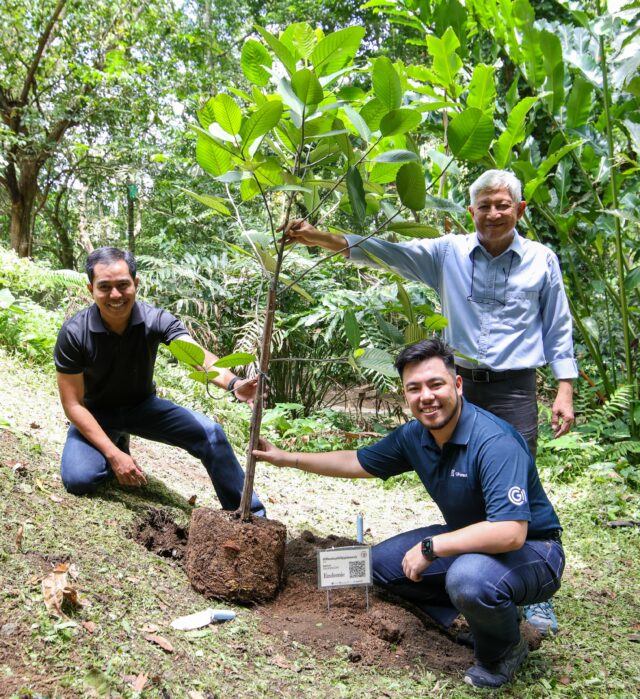
Planting 130,000 forest and fruit trees in the two UP Land Grants by 2029 through the support of local communities and the 22M GForest Green Heroes
The University of the Philippines Los Baños (UPLB) is partnering with GCash, the leading Philippine finance super app, through its GForest program, to address environmental threats like illegal forest conversion and accelerate the restoration of degraded lands within the Mount Makiling Georeserve and the Sierra Madre mountain range. The strategic partnership aims to protect and reforest 250 hectares of land within the two land grants managed by UPLB by planting at least 130,000 forest and fruit trees during the first phase, and another 25,000 seedlings for urban and roadside planting in parts of Mount Makiling Georeserve by 2029.
UPLB, as the Center for Excellence in Forestry Education, is set to implement its data-driven and science-based approach to identify suitable types of trees, strategic project areas, and apply implementation strategies to ensure environmental conservation and reforestation efforts translate into meaningful long-term impact.
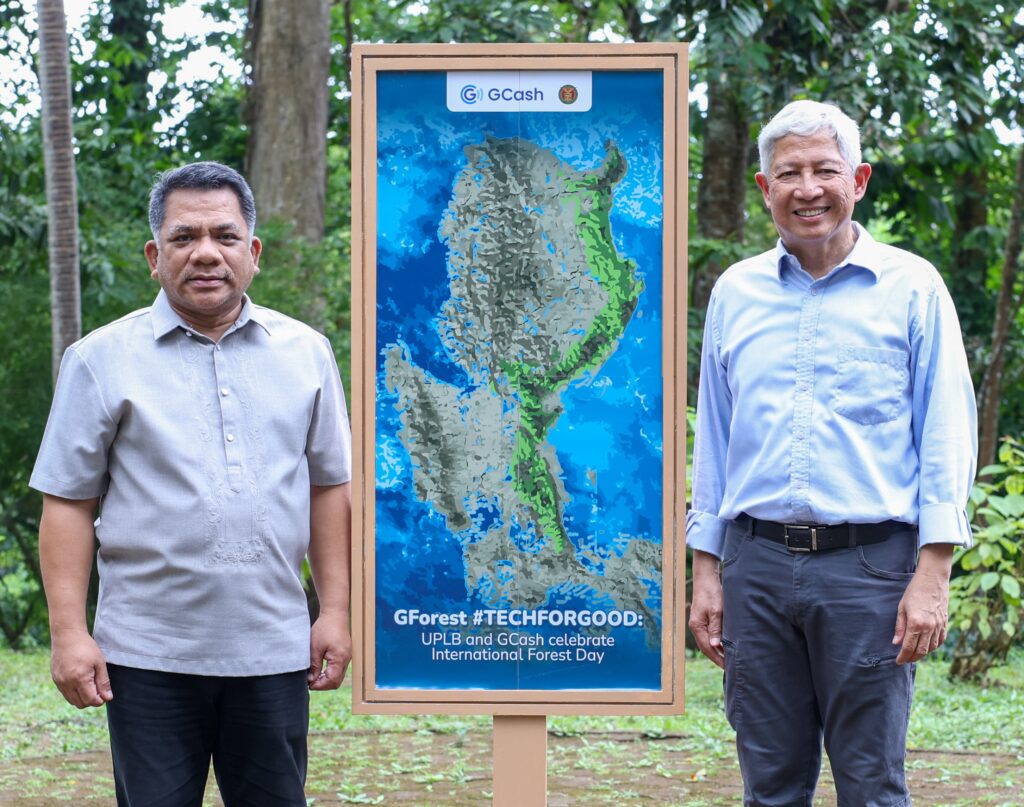
The academic institution also seeks to tap local communities as long-term partners in planting and stewardship, empowering them through livelihood opportunities and ongoing involvement. These include women’s groups, people’s organizations, and qualified UPLB community members.
UPLB also seeks to engage participation and support from relevant local government units (LGUs) in Laguna, municipalities in Quezon province, and national-level government agencies like the Department of Environment and Natural Resources (DENR) and the Department of Science and Technology (DICT).
Marked by a ceremonial contract signing led by UPLB, its College of Forestry and Natural Resources (CFNR), the Land Grant Management Office (LGMO), and GCash, through the support of its 22-million GForest Green Heroes, pledged to plant at least 130,000 forest and fruit trees across 250 hectares in two land grant areas managed by UPLB in the Sierra Madre Mountain Range.
In addition, 10 kilometers of road within the Mount Makiling Forest Reserve will be planted with species ideal for urban settings. Another 25,000 seedlings will also be cultivated for roadside planting in various parts of Laguna province.
Roadside planting in the Mt. Makiling Georeserve will provide multiple benefits, including environmental, social, and economic advantages. In terms of environmental impact, it will lead to improved air and temperature quality, carbon sequestration, noise reduction, urban flood mitigation, pollination support, and urban wildlife habitat. From a social and economic perspective, it can improve recreational opportunities and mental wellbeing, lead to energy savings, and increase property values.
“Sierra Madre is one of our last frontiers when it comes to [our remaining] intact forests,” shared UPLB-CFNR Dean Marlo D. Mendoza, MDM. [This] is rich in terms of biodiversity [and is] very high in endemism, which means a lot of species that are in Sierra Madre can only be found there or [can be found in] the Philippines and not other parts of the world.”
Luzon’s backbone against natural hazards
The Sierra Madre mountain range, which spans approximately 600 kilometers from Cagayan to Quezon Province, is known as the “backbone of Luzon” and is home to lush forests and vital watersheds that support the nation’s diverse wildlife populations. In addition, it acts as a natural shield against typhoons coming from the Pacific, protecting the Philippines by weakening and redirecting storm winds before they reach inland areas.
The end goal of the UPLB and GCash reforestation initiative is to help restore and fortify parts of the UP Sierra Madre Land Grant. The trees planted aim to convert degraded lands (remnants of past logging, timber poaching, and unsustainable farming) into thriving ecosystems of tall native forest species that form a closed or semi-closed canopy.
Fundamental to the success of this program is UPLB’s sourcing process, which focuses on native tree species that are well-adapted to the local environment and support biodiversity. UPLB researchers have selected a diverse mix of native species, such as Mayapis, Apitong, White Lauan, Almon, and Palosapis, that can support canopy restoration while promoting ecological diversity.
Meanwhile, native tree species for urban areas— such as Salingogon, Katmon, Aunasin, and Pamitoyen have been selected based on tree architecture, height, climate adaptability, and the benefits offered, such as aesthetic values, shade, pollution reduction, and habitats for wildlife. To complete the project in the coming months, UPLB will also recruit the help of local communities to oversee the planting, care, monitoring, and evaluation activities thereafter.
By championing collaboration among scientists, organizations like GCash, and local communities, this partnership creates a holistic approach that addresses environmental challenges, enhances resilience, and turns residents into long-term environmental stewards. The program includes community-based monitoring to ensure survival rates and continuous ecological and social benefits.
“We are excited about this new partnership with GCash, as it allows us to explore the environmental and socioeconomic impacts of reforestation,” said Mendoza. “Together, we can implement UPLB’s proven methods to maximize benefits for both ecosystems and local communities.”
Through this partnership, GCash continues to strengthen its commitment to sustainability. As a tech for good platform, we can bridge users with sustainability partners and environmental institutions, like UPLB, and contribute to real-world environmental efforts. CJ Alegre, GCash Head for Sustainability, added: “At GCash, we believe that technology can be a powerful tool for positive change.”


